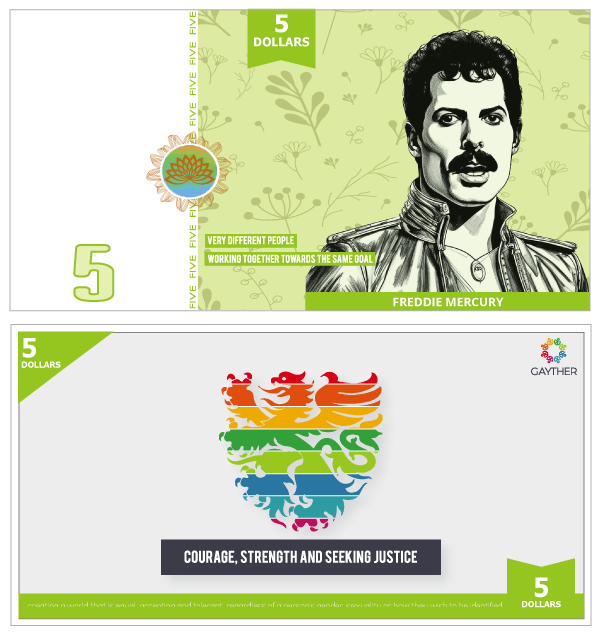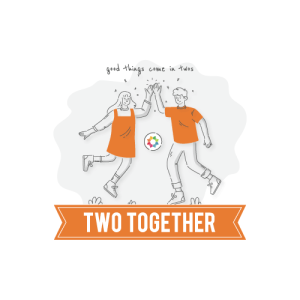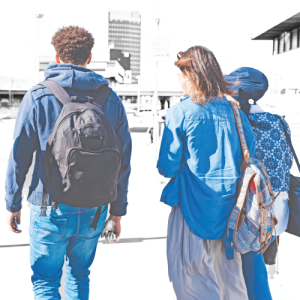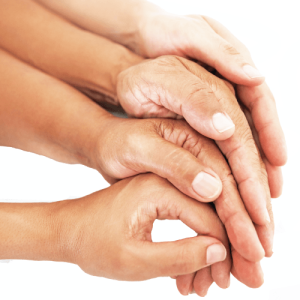
2024 LGBTQIA+ Pioneers

Over the centuries, many brave and exceptional individuals, often at significant personal risk, went against the odds and refused to let inequalities and prejudices stop them from changing the rules, laws and opinions relating to the LGBTQIA+ community across the globe.
We all must remember and celebrate all those exceptional individuals. Those people that are now and in the past who have fought hard for equal treatment for the LGBTQIA+ community
Each year we create LGBTQIA+ dollars and feature important and key individuals related to the LGBTQIA+ community. Though some of the individuals featured may not have publicly identified as LGBTQIA+, they are exceptional people who have advanced the community or world in some way.

Elizabeth, New Jersey, USA
b. 1945 – d. 1992
Marsha P. Johnson was a courageous individual known as one of the most prominent figures in the Stonewall uprising in 1969. Stonewall is considered one of the most significant LGBTQIA+ events in the community’s history, as it helped raise awareness of the plight of community members worldwide. The scenes, messages and chants of equality contributed to reigniting and gaining momentum within the modern-day global gay liberation and equality movement, which has seen significant and positive change worldwide. Marsha was a popular figure within the scene, so much so that they were nicknamed the Mayor of Christopher Street in Greenwich Village, a neighbourhood in New York City where the community members were known for frequenting. Marsha’s prominence within the community meant they quickly became an activist for equality and an early member of the Gay Liberation Front. Marsa was a caring and nurturing person, especially for young community members, which resulted in Marsha helping to form the Gay Activists Alliance and Street Transvestite Action Revolutionaries, also known as STAR, for the city’s homeless LGBT youth and sex workers.
Malcolm Michaels Junior was born in Elizabeth, New Jersey, in the United States of America. Marsha’s parents were Malcolm Senior, a General Motors assembly line worker and Alberta, a housekeeper. One of seven children, Malcolm Jnr, identifying as a methodist, grew up in a religious household; however, they knew they were different from a young age. Malcom would often wear women’s clothes in public, only stopping when they started to become harassed by the local neighbourhood boys. After being raped at a young age, Malcolm chose to remain sexually inactive until they left home to move to New York at age 17. After graduating high school, Malcolm moved to the city and began waiting tables in Greenwich Village. Malcolm Jnr spent a lot of their time with the street hustlers near the Howard Johnson restaurant in lower Manhattan, and it was at that time they came out as a drag queen and sex worker.
Initially, Malcolm Jnr used the drag queen name Black Marsha, but later changed it to something more meaningful to them, Marsha P Johnson. The Johnson part comes from the restaurant’s name: they spent much of their time outside. The middle initial is a shortened version of the phrase, pay it no mind, which used to mean someone who refuses to listen to what someone else is saying or when you ignore someone. Marsha quickly became a well-known and popular drag queen in the late 1960s gay scene and became famous for their comedic, political and musical sets and for wearing a crown of fresh flowers at performances. Throughout the 1970s until the 1990s, Marsha performed as part of the international performance troop Hot Peaches, even being photographed by the famous American artist Andy Warhol as part of his Lady and Gentlemen series.
Marsha was one of the first drag queens to go to the Stonewall Inn, a previously exclusive gay bar after the establishment began attracting and including both women and drag queens. At the Inn, a single event would take place that significantly impacted the direction of Marsha’s life. After the death of Judy Garland, emotions were high, and though police raids of the Stonewall Inn would often take place, this time, it was different. In the early hours of June 28, the police raided the Inn, and with many members frustrated and tired of how they were being treated, it sparked a riot which lasted for over one week. Marsha was one of the protestors arriving at the Inn after the riots had started and became a vocal activist. The riot gained international media attention and became a landmark for the gay liberation movement.
After the riots, Marsha became a member of the Gay Liberation Front (GLF), was an active member within the Drag Queen caucus, and marched in the first gay pride rally. Along with Marsha’s close friend, Sylvia Riveria, they formed the Street Transvestite Action Revolutionaries or STAR, an organisation set up to provide housing and support to the city’s homeless LGBT youth and sex workers. The two friends were considered the mothers of the organisation, with much of the funding coming from the sex workers themselves, and STAR has long been considered a groundbreaking organisation.
Marsha had a troubled life and was known to have mental health issues, given their volatile split personality, often with the more aggressive and confrontational personality seen more as Malcolm Jnr and the softer, kinder, generous and warm-hearted nature seen more as Marsha. Despite all of their challenges, Marsha still found the drive and motivation to care for others and make the world a better place for the LGBTQIA+ community.
Sadly, Marsha’s body was discovered floating in the Hudson River shortly after the 1992 gay pride parade. Initially ruled as suicide, Marsha’s friends and members of the community challenged the police and coroner’s report; given the wound found at the back of Marsha’s head, Marsha was just 46 at the time. The case was reopened ten years later and reclassified from suicide to undetermined. However, even with witnesses stating at the time that a group of thugs were robbing people in the neighbourhood and one witness even claiming that they overheard one of the thugs bragging that they had killed a drag queen, no one was ever prosecuted for the death of Marsha P Johnson.
Marsha will long be known for their bravery, sense of justice and caring and nurturing nature for those within their community. Marsha sought to do their part in making things better for those who came after them, and for all that Marsha did for the global LGBTQIA+, may you never be forgotten.
TAKING PRIDE IN YOU

Manhattan, New York, USA
b. 1884 – d. 1962
Eleanor Roosevelt was more than just one of the best-known and longest-serving first ladies of the United States of America. Eleanor was also a leading American political figure and activist. One of her many impressive achievements occurred while serving as a United States Delegate to the United Nations General Assembly. Eleanor took a leading role in designing the Universal Declaration of Human Rights, which underpins the UN today.
Anna Eleanor Roosevelt was born in Manhattan, New York City, in the United States of America. Eleanor’s parents were wealthy socialites; her father, Elliot Roosevelt, was the younger brother of the 26th President of the United States of America, Theodore Roosevelt. Her mother, Anna Rebecca Hall, was from the Hall, Ludlow and Livingston families, prominent members of New York society. Sadly, Eleanor’s mother and one of her brothers suffered from diphtheria and died when she was just eight. Her father fell to his death after suffering from a fit of delirium just two years later. At age ten, she moved in with her maternal grandmother. When she turned 15, she was sent to a private finishing school, Allenswood Academy in Wimbledon, London, in the United Kingdom. Though she only spent three years at the school, during her time, she was encouraged to be an independent thinker and saw her popularity and self-confidence grow. After completing her formal education in 1902, she returned to the United States, where she was presented at the debutante ball.
Shortly after Eleanor’s return to the United States, she met her future husband, Franklin Delano Roosevelt, a distant cousin, on a train to New York in 1902. After their initial meeting, Franklin and Eleanor kept their romance a secret by secretly corresponding and becoming privately engaged in 1903. Even though there was some opposition from family members, the couple married on March 17, 1905, and went on to have six children. Her husband, Franklin D Roosevelt, commonly known by the abbreviation of FDR, was elected to the office of President of the United States and became the 32nd president. Even today, FDR is the only US president to have served more than two terms in office. FDR was the President throughout the Great Depression and World War II, and his 12-year presidency ended in 1945, upon his death, one month before the end of the war.
Throughout Franklin’s presidency, Eleanor was seen as a controversial figure who was also widely admired and seen as a powerful and influential woman. Eleanor was a vocal advocate of civil rights for African Americans, wrote newspaper columns and magazines, hosted a weekly radio show, and held regular press conferences. Eleanor, throughout her adult life, was a confident, independent thinker and, on occasion, had publicly disagreed with the government, policies and political agenda of her husband. After the death of FDR, Eleanor remained a public figure and advocate and vocally supported the United States, joining the newly formed United Nations, also known as the UN, and even becoming its first delegate. While at the UN, Eleanor was the chair of the UN Commission on Human Rights and became a leading figure in drafting the Universal Declaration of Human Rights, a set of principles relating to human rights that are still used today. Later, Eleanor went on to chair the Presidential Commission of the Status of Women within the John F Kennedy administration and has long been seen as an advocate for human, women, and civil rights.
Eleanor’s marriage was plagued with infidelities, and her sexuality has often been under scrutiny due to her close relationships with known lesbians at that time, such as the journalist Lorena Hickok. Regardless of Eleanor’s sexuality and how she chose to identify, Elenor was a remarkable individual. Even though Eleanor came from a wealthy upbringing and lost key family members at a young age and all the trials and tribulations she faced, she could have enjoyed an easier life. Instead, she used her global platform to give a voice to many in society who did not. It is why, even today, she is still considered one of the most important figures of the 20th century. Anna Eleanor Roosevelt will always be remembered as a leading figure and advocate of the civil rights movement, worldwide human rights, women’s rights, and equality, and for leading the way for the rights and privileges many of us enjoy today. Eleanor, may you never be forgotten.

Plymouth, Massachusetts, USA
b. 1942 – d. 2011
Reverend Peter J Gomes was an ordained American First Baptist Church minister and professor of Christian Morals at Harvard University. Reverend Peter devoted his life to his faith and provided understanding and depth to Christian teachings. After publicly identifying as gay, Reverend Peter spent the rest of his life dedicated to addressing the root of homophobia in faith and the religious position relating to the gay community, ultimately a contributor to the introduction of same-sex marriage legislation in the USA.
Peter John Gomes was born in Plymouth, Massachusetts, in the United States of America. Peter was the only child of Peter Lobo Gomes, a fruit farm worker originally from Cape Verde and his mother, Orissa, a clerk in the Massachusetts State House. After graduating high school, Peter attended Bates College, a Baptist institution where he majored in history and where he found an interest in and calling for secular studies. After graduating in 1965, Peter studied at the Harvard Divinity School, where he excelled and even won the Harvard Preaching Prize. Shortly after graduating, Peter became an ordained minister of the First Baptist Church in Plymouth, Massachusetts, a church that was important to him and somewhere Reverend Peter would continue to preach at various points throughout his life. The Reverend Peter J Gomes took a two-tenure at Tuskegee Institute, where he taught history. Reverend Peter returned to Harvard in 1970, becoming the Pusey Minister for Harvard’s Memorial Church. Four years after accepting the post, Reverend Peter was made a Professor of Christian Morals, a role he held for over forty years.
Throughout his career, Reverend Peter loved to help people better understand their relationship with God and, over his life, published volumes of his sermons, two bestselling books (The Good Book: Reading the Bible with Mind and the Heart and Sermons, the Book of Wisdom for Daily Living), as well as giving numerous lectures and contributing to interviews, articles and academic papers. Reverend Peter was respected and considered one of the greatest preachers of our generation, even providing benediction and sermons at the inauguration of two US Presidents (President Ronald Reagan and President George H. W. Bush). Reverend Peter was once named one of America’s top preachers by Time magazine and, throughout his lifetime, received over thirty honorary degrees and became an honorary fellow of Emmanuel College, the University of Cambridge, England.
In 1991, the conservative undergraduate magazine Peninsula produced a double issue, which had just been distributed on the Harvard campus. The issue focused on homosexuality and cited the bible and various medical professionals who depicted the gay community as immoral. The following day, a gay student had profanities written on his door, resulting in tensions among students beginning to rise. In the sermon by Reverend Peter J Gomes in response to the situation, he stated: “Gay people are victims not of the Bible, not of religion, and not of the church, but of people who use religion as a way to devalue and deform those whom they can neither ignore nor convert”. The crowd went silent, and during the sermon, Reverend Peter came out as gay and stated that though he would remain celibate, he decided to advocate for the acceptance of homosexuality in both American society and religion. Throughout the rest of his life, Reverend Peter advocated for the gay community and, through his work, publications, and lectures, contributed to the introduction of US federal legislation in 2015 relating to same-sex marriage.
Religion and the LGBTQIA+ community have long had a complicated and troubled history. Reverend Peter J Gomes was a pioneer among faith leaders and believed that religion and its teachings are open to interpretation and that the bible can be read for any understanding of morality, even to justify abhorrent activities defending slavery, racism and anti-Semitism. Reverend Peter made it his mission for the rest of his life to address the religious case against the gay community and the root of homophobia. Sadly, Reverend Peter died in 2011 of complications from a stroke. Still, his legacy and devotion to both the community and religion continue. May you never be forgotten.
EXCEPTIONAL AND DIVERSE LGBTQIA+ COMMUNITY

Shoreditch, London, UK
b. 1961 – d. 1998
Justin Fashanu was the first English professional footballer to be openly gay. Justin played for many famous and well-known clubs throughout his football career, including Nottingham Forest, Newcastle United, and Manchester City. Justin also played for his country and received the cap six times to be part of England’s under-21 team. At the time of his transfer to Nottingham Forest, Justin became the first black person to command a transfer fee of 1 million pounds.
Justinus Soni Fashanu was born in Hackney, London in the United Kingdom. Justin’s parents were Patrick, a Nigerian Lawyer and Pearl, a British Guinan nurse. Shortly after his parents divorced, Justin and his older brother John were taken to Barnardo’s, a British charity that cared for vulnerable children. When Justin turned six, he was fostered by Alf and Betty Jackson and moved to Shropham in Norfolk. Justin loved sports and initially planned to become a professional boxer, a sport he excelled in; however, while attending high school, he was scouted for the football club Norwich City. Justin initially became an apprentice at the club and turned professional in 1978 at age 17.
After turning professional, Justin gained much media attention as someone who scored regularly for his team, over 40 goals during his time at Norwich City. In 1980, he won the BBC Goal of the Season award for a goal he scored during the game between Norwich City and Liverpool, as on occasion, he was known for scoring goals described as spectacular and remarkable. While at Norwich City, Justin also played for his country’s under-21 team, receiving the cap for England six times. Even though he scored numerous times for his club, when they were renegaded, Justin transferred to Nottingham Forest for a record 1 million pounds, the first and highest amount recorded for a black footballer at that time.
While at Nottingham Forest, numerous rumours spread about Justin’s sexuality, and he was often seen visiting gay nightclubs and bars. Unfortunately, Justin’s period of self-discovery coincided with when he failed to score for his team, achieving only three goals over 32 games, resulting in Justin’s self-confidence and overall performance falling. When the club discovered that Justin was gay, he was benched and barred from training with the team. In 1990, he agreed to an exclusive article with the tabloid newspaper, The Sun, in which he would publicly come out as gay. In the article, he made many claims and exclusives, many of which caused the relationship with his brother to fracture. In an interview with the Gay Times, John, Justin’s brother, stated that due to the article and exposure, and even though Justin was physically fit to play, no football club would offer him a full-time contract.
After Justin officially announced his retirement from football, he moved to Ellicott City, Maryland, in the United States of America. Justin was coaching the Maryland Mania, a second-division USL-A-League. While at the club, Justin became subject to allegations. In 1998, Justin was accused of assaulting a seventeen-year-old boy who he had met on a night out. As same-sex acts were illegal in the state at that time, and the youth had claimed the act was not consensual and performed as he awoke, a police complaint was made. Justin was interviewed but not held in custody, and later, when the police issued a warrant for Justin’s arrest on various assault charges, Justin had already fled to the United Kingdom. Fearing that he would not get a fair trial in the USA and worrying about the distress the media attention would have on his family and friends, Justin decided to take his own life at the age of 37.
Though the circumstances leading to Justin’s death are marred with controversy, and even though he never faced trial or was able to defend himself against the accusations of assault, if he had sexually assaulted the person in question, we hope the victim was able to get closure. Even though some may see Justin as a controversial figure, he is still someone who is immensely brave and who, during a period of systemic homophobia, came out and did not deny who he was. Justin was in a sport that, even today, many confused or closeted footballers still opt not to come out for fear of repercussions to their career and the hateful chants and comments from fans. Under different circumstances or in modern times, Justin was a talented football player and might have had the opportunity to shine and truly realise his full potential. Justin, may you never be forgotten.
DISCOVER HOW WELL THE COMMUNITY ARE TREATED..

Stone Town, Zanzibar City, Zanzibar
b. 1946 – d. 1991
Freddie Mercury was a British singer and songwriter and lead vocalist of the rock band Queen. Throughout his 22-year career, Freddie was a uniquely gifted vocalist known for his impressive range from baritone to tenor and flamboyant stage presence, as well as having sung on over 70 songs with Queen and performed at over 700 concerts worldwide. Freddie was also a talented songwriter, having written at least ten of Queen’s greatest hits and had a successful solo career, including two studio albums and 16 singles, including the chart hits Mr Bad Guy and Barcelona. It was Freddie’s private life that caused a turning point in raising awareness of HIV and AIDS around the world.
Farrokh Bulsara was born in Stone Town in the British protectorate of Zanzibar, which is now part of Tanzania. Farrokh’s parents, Bomi, a high court cashier working for the British Government, and Jer, a housewife at the time. One of two children, Farrokh, spent most of his childhood in India, living with relatives. At eight, he was sent to St Peter’s School, a boarding school for boys near Mumbai. The family were forced to flee their home, escaping the violence caused by the Zanzibar revolution in 1964, which saw all of the family move to Feltham, Middlesex, in the United Kingdom. Farrokh’s parents initially found life in the UK challenging, resulting in Jer working as a sales assistant at Marks and Spencer to help with the family’s finances. Farrokh began studying at Isleworth Polytechnic and went on to study graphic art and design at Ealing Art College. Music has always played an important part in Farrokh’s life, and after graduating from college, he joined a band.
In 1970, Farrokh, who would now go by the name Freddie, teamed up with Brian May and Roger Taylor to form the band Smile, which was later renamed Queen. A year later, Freddie legally changed his name to Freddie Mercury, with his surname inspired by the song My Fairy King. The band had a meteoric rise and became one of Britain’s and the world’s bestselling and known rock groups. Even today, Queen’s song Bohemian Rhapsody is the third best-selling British single of all time. The band has a star on the Hollywood Walk of Fame, has one of the longest-running fan clubs in the world, many of their songs have been featured in iconic films and TV shows throughout the decades, and the band has sold over 300 million records worldwide.
When it came to Freddie’s personal life and sexual orientation, there was always a lot of speculation. Even though Freddie never confirmed his sexuality, there was always a lot of media attention relating to whether he was gay, given his flamboyant stage presence. One of his earliest and most important relationships was with Mary Austin, with whom he shared a home and was in a relationship for seven years. After the relationship ended, Freddie was rumoured to have a string of male partners, with his longest relationship lasting for over seven years with his partner Jim Hutton. Freddie’s previous relationship with Mary is why many speculated that he may have been bisexual rather than gay, and even though his relationship ended with Mary, they remained close friends even up until his death. It was believed that Freddie contracted HIV in the early 1980s, keeping the diagnosis secret for many years. In 1987, Freddie was diagnosed with AIDS and at that time, he confirmed that he had previously tested negative for HIV, keeping his ailing health private to protect his friends and family. Sadly, Freddie died of bronchial pneumonia resulting from AIDS in 1991 at age 45.
Even though he was a flamboyant character, Freddie was very private, and his environment likely affected many of the decisions in his life. Moving to the UK in 1964, it was still illegal for homosexual acts to be performed for men over the age of 21, an offence under the Sexual Offences Act, which would likely have affected the openness and freedom of many gay and bisexual men. When Freddie was first diagnosed with HIV in the 1980s, very little was known about the disease, and much fear existed about how it could be contracted. Once it was publicly known that Freddie had HIV and AIDS, it had a huge global impact. Freddie Mercury was the first major rock star and celebrity to have died of complications caused by AIDS. His death raised awareness of the disease and, through the Mercury Phoenix Trust and the Freddie Mercury Tribute Concert, raised money for AIDS research. The trust over the years has gone on to raise millions of dollars and sparked many safe-sex campaigns around the world to reduce the stigma and infection rate of the disease. Freddie was an immensely talented performer whose music is still enjoyed by millions worldwide today. Freddie, may you never be forgotten.
LGBTQIA+ COUNTRY & REGION GUIDES

Over the centuries, the treatment of the community and its members’ rights has changed, from individuals being tolerated and often on the fringe of society to becoming active targets and facing brutal persecution. It was only until the end of the 18th Century that things improved. Large scale global change only began to occur in the 20th Century, typically from the 1970s to the present day.
The New York Stonewall Riots in 1969 became a catalyst for the global gay liberation movement. However, many brave individuals have stood up and championed the community throughout history, often at significant risk to themselves. It is often hard to imagine what life must have been like even as recent as 40 years ago, left alone 200 years. With conservative and religious beliefs dominating society, many individuals were required to suppress and hide their true selves for fear of persecution.
It took a group of brave and fearless individuals to stand up and have their voices heard. To show the world that the rules, laws and opinions had to change. The change resulted in the freedoms and rights many of us now enjoy. Increase acceptance and protection within the law directly given the work and effort of these exceptional individuals. Though there have been significant developments relating to the equality status for many members of the LGBTQIA+ community, they are not so fortunate. Many people still live in countries and under regimes; even today, they are actively targeted and in constant fear for their lives. In those countries right now, activists are fighting to change the rights and laws. As individuals and all the risks, and for their bravery and desire to see change, we are truly grateful for all they are going for the global community. We know many of those activists will become pioneers in the future.
Gayther feels it is crucial to highlight and focus on these exceptional pioneers as a community and their contributions to fairer and more tolerant societies worldwide. To showcase all that they have accomplished and to ensure that they are never forgotten, so we would like to take this opportunity to introduce you to Gayther’s annual pioneer collection.
Other collections: ADVOCATES | PIONEER COLLECTIONS: 2026 | 2025 | 2024 | 2023 | 2022 | 2021 | 2020 | 2019
IS THERE SOMEONE YOU BELIEVE SHOULD BE FEATURED IN THE 2025 COLLECTION?
There are thousands of events taking place, it is not always easy to know what is going on and when, Gayther can help




































